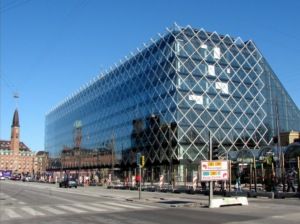News
Business News in Brief: Danish economy finally on the upswing
This article is more than 8 years old.
Economic upswing, an increasingly healthy order-book for Vestas, potential property tax problems for business and increased bankruptcy levels in Greater Copenhagen

All in all, things are looking rosier for Danish industry (photo: Orf3us)
There are definite signs that the long-awaited upswing in the Danish economy is imminent, according to new research from the confederation of Danish industry, Dansk Industri (DI).
Four times per year, the members of DI’s company panel are asked what their expectations are with regard to profits, turnover and employment for the coming quarter. The answers this time are more positive than at any time over the last six years.
DI estimates that, based on the survey, around 15,000 full-time jobs could be created during the first half of 2017.
However, one thing that might put a spanner in the works is the lack of qualified labour. Kent Damsgaard, the deputy head of DI, said that “we need to do more to get people on the fringes of the job market into employment. We must ensure that firms can get the necessary labour and stimulate more young people into taking the right educational path.”
Vestas still has the wind in its sails
Danish wind-turbine manufacturer Vestas continues to go from strength to strength, with first-quarter order-book figures worth up to 9 billion euros.
In the first quarter, Vestas had a turnover of 1.9 billion euros, which equates to around 14 billion kroner. That is an increase of almost 33 percent, BT reports.
“Vestas has presented solid results for the first quarter, and as expected it made a good start to 2017, with a satisfactory number of new orders and a better overall order-book,” Anders Runevad, the CEO of Vestas, wrote in the accounts.
Property tax deal good for homeowners, but not so good for business
The new deal worked out on Tuesday between the government, Dansk Folkeparti, Socialdemokratiet and Radikale is being trumpeted as providing security for the nation’s homeowners.
However, whilst guarantees have been given to homeowners to cushion them against unpleasant surprises from the tax authorities in the period up to the new property valuations, no such security exists for business premises
“We predict unpleasant surprises for companies in the 37 municipalities around the capital where they charge dækningsafgift [a charge levied by the municipality on business premises up to 1 percent of the difference between the value of the ground and the total value of the property]. At the same time, there are also going to be new ways of calculating the value of the buildings, which this charge is based upon,” said Kent Damsgaard of DI.
Number of bankruptcies rising in Greater Copenhagen
New figures show that Greater Copenhagen has experienced an increase in the number of bankruptcies, whilst numbers in Zealand and southern Jutland have fallen slightly, Dansk Erhverv reports.
In April, 475 companies went bust, which is more or less the same as the number for March, which saw 472 bankruptcies. Jonas Spendrup Meyer, an economist at Dansk Erhverv, said “it looks like status quo but if seasonable variations are taken into account, we can see that the number of bankruptcies rose by 4.7 percent from March to April.”
Greater Copenhagen was responsible for the lion’s share of bankruptcies and, after some seasonal correction, there were 247 companies going bust in April, which was 33 more than in March.
“Looked at in relation to the number of companies in the area [Greater Copenhagen], in other words the number of bankruptcies per 1,000 active companies, Greater Copenhagen has the largest proportion of bankruptcies. This should be seen in the light of the fact there are more companies in more competitive branches around a large city like Copenhagen,” Meyer said.










































